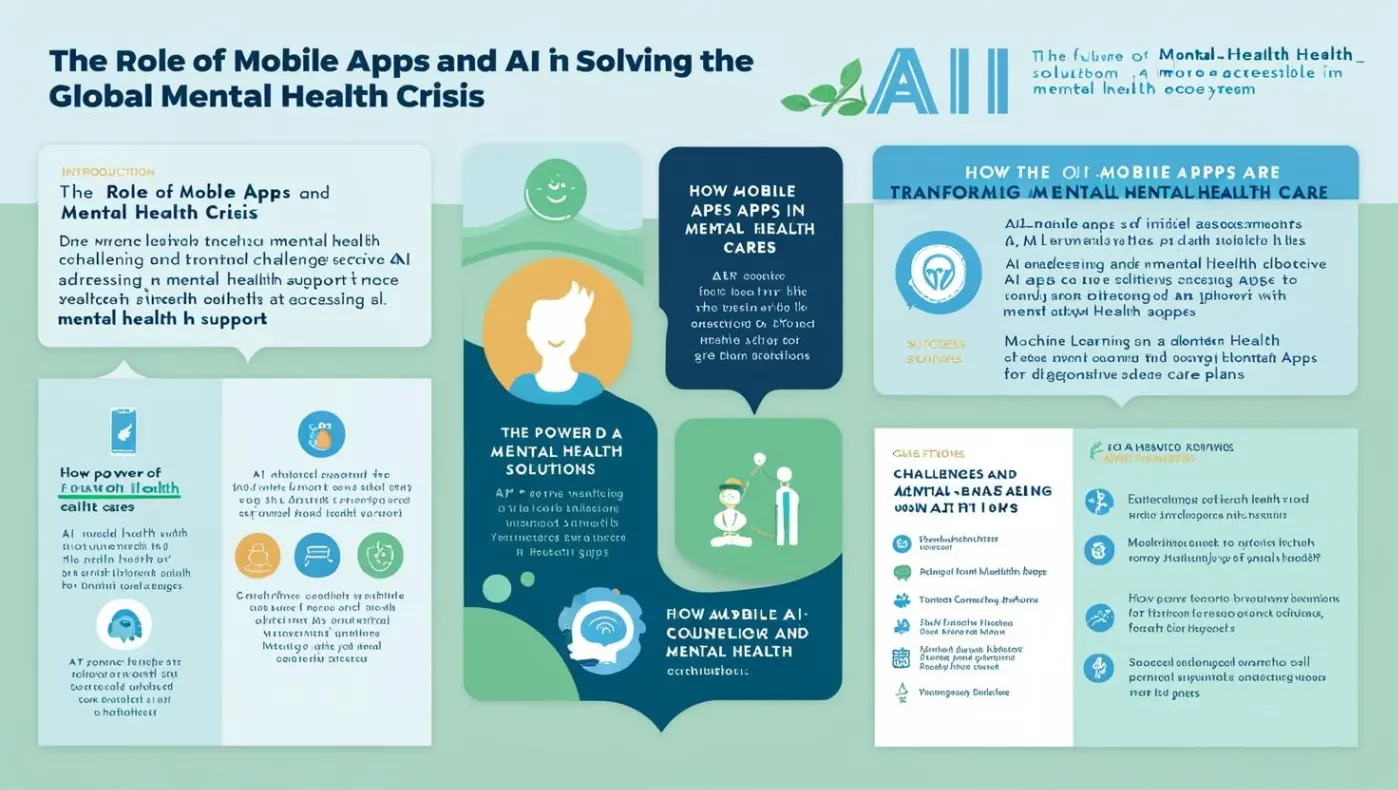The Role of Mobile Apps and AI in Solving the Global Mental Health Crisis

The global mental health crisis is a pressing issue, affecting millions worldwide. Traditional mental healthcare often faces barriers like accessibility, affordability, and stigma. This is where mobile apps and artificial intelligence (AI) can play a crucial role in revolutionizing mental healthcare delivery. AI-powered apps can offer personalized mental wellness programs, including cognitive behavioral therapy (CBT) techniques, mindfulness exercises, and stress management tools. These apps can provide 24/7 access to support, making mental healthcare more accessible and convenient for individuals, especially those in remote areas or with limited access to traditional services.
Furthermore, AI algorithms can analyze user data, such as sleep patterns, activity levels, and mood entries, to identify early warning signs of mental health issues. This proactive approach allows for timely interventions and personalized treatment plans. AI chatbots and virtual assistants can provide initial assessments, answer basic questions, and offer immediate support, reducing the burden on mental health professionals and improving the efficiency of care delivery. These technologies can also help to destigmatize mental health by providing a discreet and accessible platform for individuals to seek support.
However, it's crucial to acknowledge the limitations and ethical considerations surrounding the use of AI in mental healthcare. Data privacy and security are paramount, and it's essential to ensure that AI algorithms are unbiased and do not perpetuate harmful stereotypes. Human oversight and intervention remain crucial to ensure the safety and effectiveness of AI-powered mental health solutions. By addressing these challenges and leveraging the power of mobile apps and AI responsibly, we can create a more accessible, affordable, and effective mental healthcare system for people worldwide.
Introduction to the Mental Health Crisis
There's a silent challenge happening globally, a kind of hidden pandemic, affecting so many of us. We're talking about mental health. From everyday worries and feelings of sadness to more complex conditions like bipolar disorder and schizophrenia, these struggles touch people of all ages and from every walk of life. The World Health Organization (WHO) tells us that roughly one in eight people around the globe are living with a mental health condition. This isn't just about individual hardship; it also impacts how our communities function, our economies, and our overall well-being.
Getting help when you need it can feel like a real hurdle. The traditional mental healthcare system is often stretched thin, with long waiting lists, limited resources, and, sadly, the stigma that can sometimes come with seeking help. All these things can prevent people from getting the support they need. And in many places, finding a mental health professional nearby can be really difficult, which means so many are left without crucial care.
But there's hope on the horizon. The urgent need for better options has sparked some really exciting ideas, especially when it comes to using mobile technology and artificial intelligence (AI) in mental health care. Imagine tools that could help us prevent, diagnose, and treat mental health conditions in new ways. This kind of technology could make it possible for mental healthcare to be more accessible, affordable, and, ultimately, more helpful for people all around the world.
Understanding the Global Scope of Mental Health Challenges
It's a tough reality: mental health challenges are a widespread concern, affecting people of all ages and walks of life. We're talking about everything from everyday anxiety and depression to more complex conditions like bipolar disorder and schizophrenia. The World Health Organization (WHO) estimates that a staggering one in eight people around the globe grapple with a mental health disorder. This isn't just a personal struggle; it has significant consequences for our communities, affecting productivity, social harmony, and overall well-being.
Getting the right support is often a real hurdle. Long waiting lists, limited resources, and the stigma surrounding mental health are all too common. Add to that the fact that many areas lack sufficient mental health professionals, and you see why countless people are left without the essential support they need.
Barriers to Accessing Mental Health Support
Getting help isn't always easy. Long waiting lists, not enough resources, and sadly, the stigma of reaching out prevent many from accessing the support they need. Plus, in many places, there simply aren't enough mental health professionals, leaving people without options.